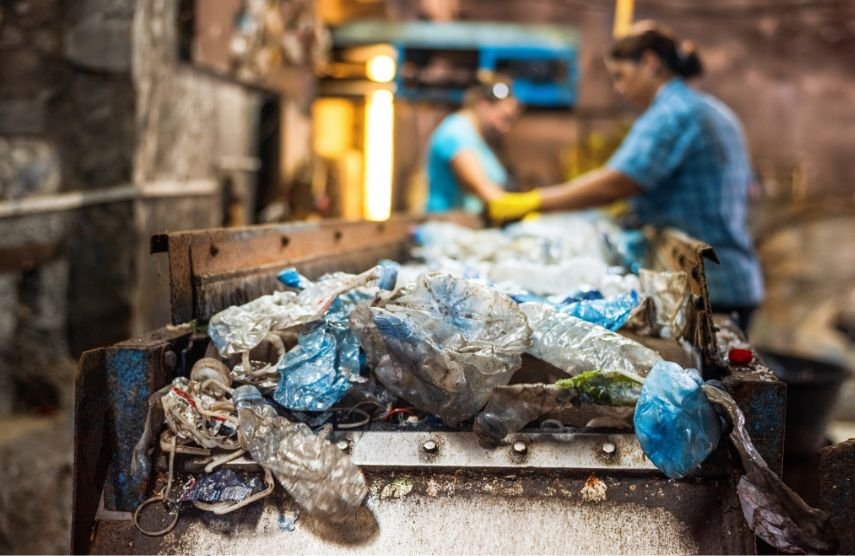Does Plastic Recycling Work? Exploring Alternatives
Plastic, an essential material in modern life, has become a major environmental concern due to its slow decomposition rate and tendency to pollute ecosystems. Recycling is often touted as a solution to this problem, but how effective is it?
Does Plastics Recycling Solve the Problem?
While plastic recycling has made strides, it's far from a perfect solution. A significant portion of plastic waste still ends up in landfills or oceans. Recycling can be energy-intensive and often face challenges.
Only 21% of recyclable material is captured, and all materials are under-recycled. 76% of recyclables are lost at the household level, underscoring the importance of providing all households with recycling services and engaging people with good communication about recycling locally.
Several experts and organizations have spoken out against the effectiveness of plastic recycling. Here are some notable figures and organizations that have raised concerns:
Jan Dell: A former chemical engineer, Dell has been a vocal critic of the plastic recycling industry, arguing that it is a myth and that most plastic waste ends up in landfills or the environment. Her documentary, "The Plastic Tide," has significantly raised awareness.
Human Rights Watch: The organization has highlighted the health and environmental risks associated with plastic recycling in countries like Turkey, where recycling facilities do not adhere to proper standards, leading to pollution and health hazards for workers and nearby communities.
Environmentalists and scientists: Many environmentalists and scientists have expressed skepticism about the effectiveness of plastic recycling, citing low recycling rates and the difficulty of recycling certain types of plastics.
Limitations and Challenges of Plastic Recycling
Experts and organizations concerned about low recycling rates mainly blame contamination issues and the economic challenges associated with plastic recycling, but here is a more complete list:
Low Recycling Rates: Only a small percentage of plastic waste is recycled, with the majority ending up in landfills or the environment.
Contamination Issues: Plastic recycling is often hindered by contamination from food residues, labels, and other materials, making it difficult to sort and process.
Market Fluctuations: The demand for recycled plastic can be volatile, making recycling facilities less economically viable.
Quality Degradation: Plastic can lose quality with each recycling cycle. The process can degrade the material's properties, making it less suitable for certain applications. This limitation restricts the types of products that can be made from recycled plastic.
Energy Consumption: Recycling plastic can be energy-intensive, particularly when compared to producing new plastic.
Limited infrastructure: In many areas, there is insufficient infrastructure to collect, sort, and process recyclable plastics efficiently, leading to waste disposal challenges.
The effectiveness of plastic recycling laws: This is a complex issue with mixed results. While these laws have made significant strides in raising awareness and improving recycling infrastructure, challenges remain in achieving sustainable plastic waste management.
The Alternative Benefits of Biodegradable Additives
As plastic recycling faces challenges, there is growing interest in alternative solutions. Since most plastic waste ends up in landfills anyway, why not address the problem in the landfill?
Pristine® biodegradable plastic additive offers a promising approach. By incorporating this additive into plastic products, they can be designed to break down naturally in landfills and marine environments, reducing their environmental impact.
Details:
Pristine® is a developed, independently tested, efficient solution addressing the most common problems with other biodegradable plastics.
It turns traditional plastics into biodegradable materials. Pristine® is formulated to be compatible with the most common non-bio-based plastics, including PP, PVC, PET, HDPE, LDPE, EPDL, nylons, styrenes, and olefins. There is no need to retool or produce a custom bioplastic material; Pristine® works with existing materials and production facilities.
It allows plastics to biodegrade in numerous environments. Pristine® has been tested by independent third parties using ASTM testing methods, and it is recognized and accepted worldwide. Pristine® enhances the biodegradation rate of traditional plastics, allowing them to biodegrade in landfills and marine environments. It ensures that, if recycling is not an option, plastic materials no longer remain in the environment indefinitely.
It does not hinder performance. Plastic materials treated with Pristine® lose none of their original qualities. They remain durable, versatile, easy to process, and cost-efficient to produce.
While plastic recycling can reduce waste, it's not a silver bullet. The challenges associated with recycling and the limitations of recycled plastic highlight the need for innovative solutions. Pristine® offers a promising alternative that can help address the plastic pollution crisis.
Contact Pristine® to learn about our mission to contribute to sustainable plastic manufacturing and how we can help your manufacturing process deliver a positive difference for our planet and its future.
#PlasticRecycling #BiodegradablePlasticAdditive #Pristine

